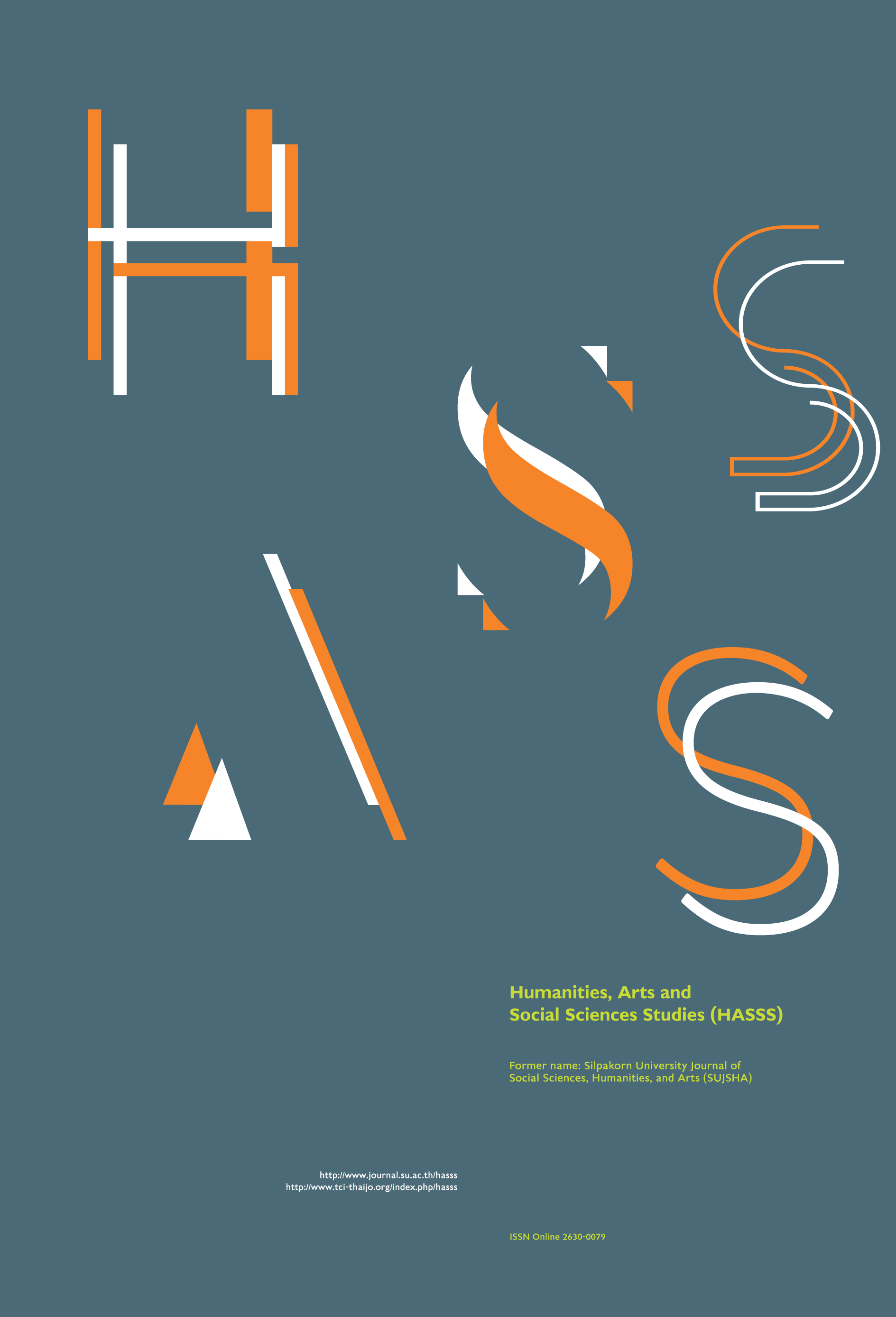Applying Human-Centered Design for Game Development to Promote the Local Wisdom of Indigo-Dyed Fabrics
Main Article Content
Abstract
This study aims to develop an interactive game to promote the local wisdom of natural indigo dyeing as a unique cultural characteristic of Sakon Nakhon Province, and to create a new approach of learning local wisdom that corresponds with modern instructional models. The conceptual framework for this research was applied from the Human-Centered Design concept. The guide to the media development, contents, and game condition, were theoretically community-based in which the game design was directly engaged with the stakeholders comprising: Group 1: a pilot community of natural indigo and color dyeing, academicians, media design specialists, indigo dyeing specialists; and Group 2: young volunteers joining the game test and media assessment specialists. Data was collected via questionnaires, interviews, field observations and a learning evaluation test. Statistics used in the study were frequency, percentage, mean and standard deviation. After the media assessment and game test had been conducted with the specialists and volunteer game players, it was concluded that the game quality was rated at a good level, while the players’ satisfaction was at a very high level. The media component received a high level of satisfaction; the highest being in the category Interaction with users. Furthermore, the volunteer game players gained better knowledge of natural indigo dyeing with an Effective Index (E.I.) of 0.7987 or 79.87%.
Downloads
Article Details
All rights reserved. Apart from citations for the purposes of research, private study, or criticism and review,no part of this publication may be reproduced, stored or transmitted in any other form without prior written permission by the publisher.
References
Chesamae, A., Nakaram, N. and Phondee, S. (2017) Development of tourist attraction simulation game prototype by using gamification format: case study Puranawas Tong Tew Pa Ploen Game. Journal of Humanities and Social Sciences Thonburi University 1(1): 14-23.
International Organization for Standardisation. (1999) Human-centred design processes for interactive systems (ISO Standard No.13407:1999). [Online URL: https://www.iso.org/obp/ui/#iso:std:iso:13407:ed-1:v1:en]
accessed on March 9, 2019.
Pakpaern, J. (2016) Development of Computer Games Based on the Abstract Code Model for Mathematics Problem Solving Skills in Lower Secondary School Students. Doctoral thesis. Burapha University, Thailand.
Saithong A. (2002) Developing Knowledge Module for Thai-Tor Wisdom of Weaving. Sakon Nakhon: Sakon Nakhon Rajabhat University.
Saithong, A. (2015) The Development of Indigo-Dyed Cloths’ Pattern for the New Generation People. SNRU Journal of Science and Technology 7(13): 11-20.
Samranwong, P., Pimpakun, W. and Tantipatum, M. (2017) The Development of 2D Vocabulary Game for Supplementary English language in Primary Education. Paper presented at the 3rd National Conference on Technology and Innovation Management, Rajabhat Mahasarakham University, March 2-3. [Online URL: http://chair.rmu.ac.th/file-paper/sahachai.ng@gmail.com20170228204144.pdf] accessed on June 14, 2018.
Songleknok, S., Loipha, S. and Vongprasert, C. (2015) Knowledge Management Process of Indigo Dyed Cloth Community Business. Khon Kaen University Research Journal 15(3): 1-14.
Sripasuda, L, Suwannathen, S. and Thongpan, P. (2018). How to Thai adolescent use New media for advantage? SNRU Journal of Curriculum and Instruction 10(7): 227-235.
Supphakhun, P. (2015) Development of Computer Game for Promoting Rational Antibiotic Use. Master’s thesis. Silpakorn University, Thailand.
Thienmongkol, R. and Waring, M. (2012) Using human-centred design to create well transit map recognition in the city: A 'developing country' case study. European Journal of Social Sciences 34(1): 106-117.


